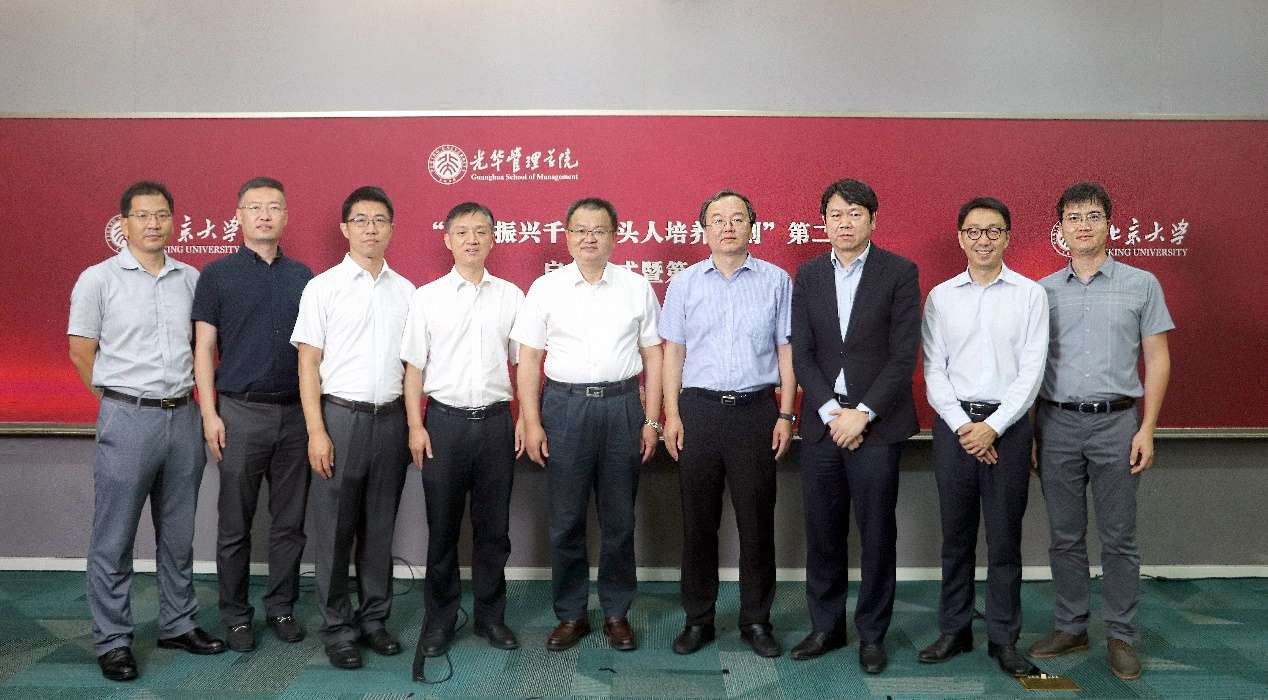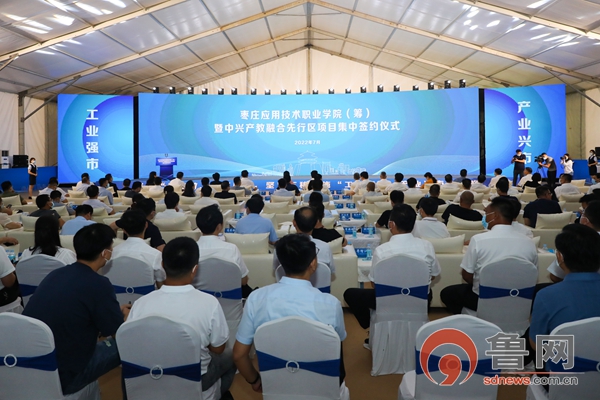The second phase of the "Rural Rejuvenation Top 10 Top Ten Leader Training Plan" was launched at Peking University
Author:Guangming Daily client Time:2022.08.20
The launching ceremony of the second phase of the "Rural Revitalization Top 10 million leaders" was held at Peking University before the first lesson, and live broadcast online. In his speech, the deputy director of the Development Planning Department of the Ministry of Education pointed out that the first phase of the "Rural Revitalization Top 10 million Leader Training Plan" plan received a warm response and support from related assistance universities and assistant counties. Serving rural rejuvenation and innovation test cultivation project has become a typical case for universities to help the alliance work. He believes that the second phase of training plan can start from three aspects: first, to improve political standing and unified ideas; second, we must improve the teaching system and ensure the quality of training; the third is to summarize the work experience and improve the training effect. He is looking forward to the start of the second phase of the "Rural Revitalization Top 10 Top Restaurant Training Plan", and will continue to effectively help the training of rural rejuvenation from a wider range. At the same time , Contribute new and greater educational forces to promote the revitalization of rural industries.
Ruan Changyi, deputy director of the Policy and Regulations Department of the State and Rural Revitalization Bureau, pointed out that the revitalization of rural areas, industrial development is the foundation, and talent revitalization is the key. At present, the construction of rural talents has achieved obvious achievements. However, problems such as insufficient number of talents and unreasonable structures in rural revitalization still exist. This training plan launched by Peking University and universities such as college education assistance alliances and China Education Development Strategy Society is well in line with the actual needs of the training of rural revitalization leading talents. It is believed that through the implementation of this training plan, it will definitely be able to cultivate a group of "leading geese" and "pioneering cattle" for the development of industrial development for the development of poverty alleviation.
Zhang Pingwen, Vice President of Peking University, Chairman of the Education Assistance Committee of China Education Development Strategic Society, and academician of the Chinese Academy of Sciences, pointed out that deepening education assistance and helping rural rejuvenation is the glorious mission of all units of Peking University and college education systems. At present, Peking University has actively explored the work of helping the service education system and the overall overall situation of rural revitalization strategies. The "Rural Revitalization Ten Thousand Leader Training Plan" is one of them. In order to set up the "plan" in this issue, he proposed three "hopes": First, he hoped that the Ministry of Education and the State and Rural Revitalization Bureau continued to strengthen guidance and support. Universities, experts and scholars, and national key help counties cooperate closely, do a good job of training organizations, and improve the quality of training. Third, they hope that all students will conscientiously implement the training requirements and complete the learning tasks with quality and quantity.
According to Liu Qiao, dean of Peking University's Guanghua School of Management, this training plan will work hard to cultivate a group of talents with a batch of rural industries with a wide range of vision and construction capabilities. In order to complete the teaching task high -quality, the college will focus on the three major aspects: first, the curriculum plan is closely linked to the theme, focusing on the theory and practical issues that the rural industry rejuvenation needs to be solved; the second is to provide diversified teachers and provide theoretical support for the implementation of industrial revitalization to provide theoretical support The first line of experience; the third is to bring a better learning experience to the leaders of the rural industry with digital technology.
After the launching ceremony, Zhang Pingwen taught the first lesson of the second phase of the second phase of the "Rural Revitalization Ten Thousand Leader Training Plan". He took the title "Digital Ecology and Digital Villages", and first explained from a macro and overall level: Why did the party and the country attach great importance to digital intelligence construction? Why is the development of the digital economy become my country's national strategy? Why build a digital ecological assessment scale? In his opinion, digital countryside is an important part of the digital ecology. He also combined with the policy guidelines, development status and successful cases of digital rural construction, and proposed that digital rural development must be people -oriented, good at borrowing, paying attention to green and sustainable, paying attention to cultural heritage, and particular emphasis on the fundamental development of digital rural development. It is a reasonable and fair distribution of talents and digital dividends in the countryside.
A total of nearly 1,500 students participated in the training plan. The personnel came from 1069 districts, counties, and flags across the country. It covers the national rural revitalization focus to help counties and the Ministry of Education's universities directly under the Ministry of Education, and the provincial universities and universities.

(Guests attending the launching ceremony)
In the next three months, the students will study 12 major compulsory courses. Through the "interpretation of rural revitalization macro policy", "grass -roots organization governance and innovative industrial management", "introduction" and "going global" -Dodeling case discussions, for the policy, technology, and funds encountered by the leaders of the industry in specific work , Market, channels and other core issues provide theoretical support, analysis tools and reference cases. In addition, the Guanghua School of Management also opened 20 digital courses for autonomous learning, which involves party building leadership and new development concepts, basic knowledge in the field of economic management, cutting -edge research on disciplines, as well as economic hotspots such as "carbon neutral" and infrastructure public offering REITs Interpretation. Students can conduct targeted learning in conjunction with their own situation. (Guangming Daily All Media Reporter Jin Haotian)
- END -
Straits Times: The Chinese are still enthusiastic about this matter
Singapore's Straits Times July 16 article, original topic: Despite the government's ban, Chinese people's enthusiasm for learning English will not diminish EnglishEnglish is the core course of teach...
Zaozhuang Applied Technology Vocational College (Capital) and ZTE's centralized signing ceremony of the first -line zone project of ZTE

Luwang, July 17 (Reporter Du Wei, an apprenticeship reporter Li Yanqi Corresponden...